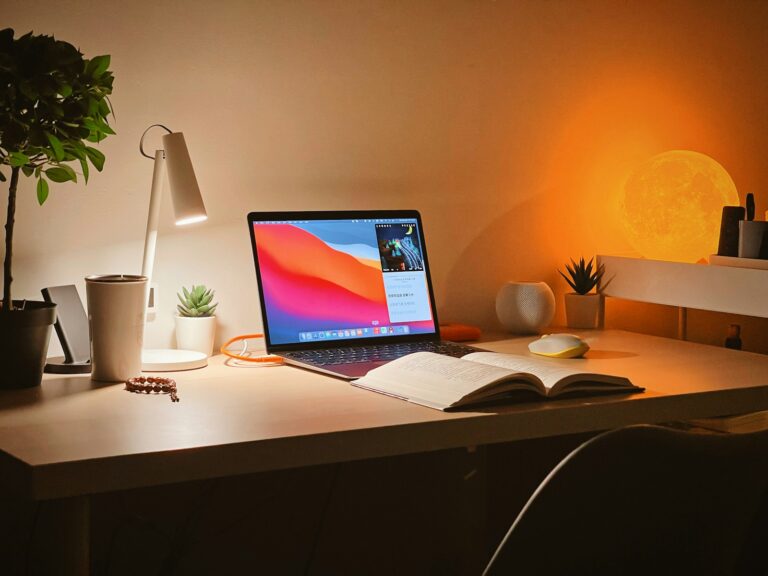How To Email Your College Professor: The Ultimate Guide
Learn how to write a respectful and professional email to your teachers in college.
One of the luxuries of high school was always having easy contact with your teachers.
If you had a question or concern, you’d simply walk up to them during class and just ask them. Or have your parents email them.
However, in college, communication becomes a little bit more challenging because you spend less time with your professor and more time doing independent studying. And as a result, email become the primary method of communicating with your teachers in college.
For some college students, email communication is foreign to them and there’s a bit of a learning curve on how to send a well-written email to their professor.
If you’re anxious about hitting send to your professor, don’t fret–I’m here to help you become an email writing master. And by the end of it, your professor will love receiving your emails and you can apply these skills to any email you send post-college graduation.
In general, when writing an email to a professor keep these 5 points in mind:
- Use a respectful greeting and closing
- Keep your message short and sweet
- Identify yourself and what class you’re in
- Be specific
- Thank them for their time
We will expand on these 5 things more fully in this guide on how to write a professional email to your college professor.
- Learn how to write a respectful and professional email to your teachers in college.
- Before you write your email, make sure you are using the right communication method
- How to address a professor in an email
- 6 tips for writing the body of your email to your professor
- How do you ask a professor to reply?
- How to end an email to a professor
- A sample email to a professor
- Related questions to emailing your college professor
- Concluding thoughts how to to email your professor
- Thanks for reading about how to write an email to your college professor.

*This post may contain affiliate links. Purchasing a product or service through an affiliate will earn me a small commission at no additional cost to you. Please read our Disclaimer Policy for more information about the use of affiliate links on this site.
Before you write your email, make sure you are using the right communication method
First are foremost, before spending 10-minutes writing an email to your professor, make sure you are using the communication method your professor wants you to use.
You can typically find this information on the first, sometimes second, page your course syllabus or in a section called, “instructor information,” “communication information,” or something along those lines.
Most likely your professor will want you to email them since this gives you and your professor a paper trail of your communication.
However, some professors are picky about which email you write to…
For example, at my university, everyone has 2 emails:
- Their university email
- Their classroom management email
In my experience, most professors want emails sent to them from your university email to their university email.
I’ve only come across one professor in my graduate school program who actually wanted us to use the classroom management email service.
But most likely, you will need to email them from your university email to your professor’s university email through the email service provider your university uses like Gmail or Outlook.
By not checking the proper communication method beforehand you may:
- Not receive a response at all
- Not receive a timely response (within 24-48 hrs.)
- Annoy your professor
So it always a good idea to double check even if you’ve written your professor already this semester. I always double check just to be on the safe side and it only takes a couple of minutes.
How to address a professor in an email
Your greeting line or how you address your professor sets a tone for the email and shows that you respect them.
I always write either “Dear Dr. Professor Name” or “Dr. Professor Name.” Sometimes I feel weird writing dear, so I mostly use the latter.
If your professor has earned a Ph.D. (Doctor of Philosophy), and they most likely will, then you’ll use “Dr.” for their title.
But if you are unsure, use “Professor.”
Example greetings:
- Dear Dr. Doe OR Dr. Doe
- Dear Professor Doe OR Professor Doe
6 tips for writing the body of your email to your professor
Writing emails to your professor is an art form that takes some practicing to master. However, with these email etiquette tips for students you’ll be off to a great start!
1. Make it apparent who you are and what class you’re from
Within the first 2-3 sentences you need to make it clear who you are and what class you are from.
This is very important because professors may have a lot of students and by not identifying who you are your response may be delayed or they may confuse you with another student especially if you have a common first or last name.
Here’s is a template you could use:
Template
This is [first and last name] from your [class name and section number] class that meets on [day(s) and times].
Example
This is Juliet Meiling from your STAT 1000 Section 1 class that meets on Monday and Wednesdays at 9 AM.
Later in this blog post I will provide you a sample email to help you put all these tips together into your next email to your professor.
2. Keep it short and sweet
Professors are busy! From meetings, to teaching classes, to grading papers, and taking care of their own families, they don’t have time to read a 1-page email from you.
That means no long, drawn out stories or a brain dump of all your thoughts and concerns.
If you do or need to write a long email to your professor, break it up into shorter paragraphs rather than a whole wall of text, just like this blog post.
But as a rule of thumb, keep your email short in length (less than 300 words or so) and be direct about what you want from them. More on this in the next tip…
You may also like: A Guide To Zoom Etiquette for College Students
3. Be specific
Your professor doesn’t have time to play guessing games about the intent of the email…
So make it clear to them what you are inquiring about such as a:
- Grade appeal or correction
- Request for a letter of recommendation
- Schedule an appointment during their office hours
- Clarification on a concept or practice problem
- Reason why you weren’t in class
- Deadline extension
- Etc.
The more clear and upfront you are, the easier it will be for them to respond to you. They’ll be able to address your concern in their very first response and you don’t have to play email tag with them back and forth.
4. Don’t use chatspeak or emojis
Your university email is like a work email you’d have at a professional job. That means, you need to write as professional as possible.
So avoid using:
- Emojis
- Chatspeak or internet slang (lol, brb, g2g, u, y, etc.)
- Curse words or profanity
- GIFs
Instead, write out your words in full, double check your spelling, grammar, and punctuation, and even have a roommate or friend read it over for you before pressing send.
For spelling, grammar, and punctuation, you can use the Grammarly Chrome Extension (it’s free) and it’ll help you write a better worded email as you are typing.
5. Always thank them
As a sign of respect you need to thank your professor for their time reading and responding to your email.
It doesn’t have to be long thank you message, but something as simple as, “thank you for your time. I appreciate you taking the time to read and respond to this email,” would suffice.
Professors read and receive a lot of emails every day and not all of them are well formatted, professional emails.
But if you start and end your email professionally with a to-the-point message in between, they will notice and appreciate the thoughtful email to them.
6. Compress large files
There may be an occasion where you need to email your professor a digital file, like a PDF or JPG image.
Sometimes these files can be quite large in size, which makes them:
- Slower to send
- Longer to download for your professor
- Unable to be sent due to the large file size
To make your professor’s life easier, I’d recommend compressing the files, which is super quick and free!
Here are some FREE tools and resources for compressing digital files:
- For PDFs you can use PDFCompressor.com
- For JPG/JPEG images you can use CompressJPEG.com
- For PNG images you can use CompressPNG.cm
- For PPT you can compress the images–click here for a tutorial
How do you ask a professor to reply?
Most likely if you are emailing your professor, you’re wanting a response in return.
Although it is implied by simply writing an email you want a response in return, it doesn’t hurt to add in a sentence that requests a response.
To politely ask them to reply you can write something like this:
I would appreciate any feedback you could give me in regards to this assignment.
or this…
I look forward to your response on this matter.
How to end an email to a professor
Your email is not quite done yet!
To properly close out your email you need a professional closing such as:
- Best
- Best regards
- Sincerely
Indeed.com has a more extensive list of phrases to close your email out you can check out by clicking here.
And you need to add in final identifying information like your:
- Full name
- Student ID
- Email address
This way your professor has all the information they would need to help you.
For example, if you were inquiring about what classes you would need to take next semester, by providing your student ID your professor could easily look you up in your university’s registrar database.
Or if you sent a longer email, my providing your name at the end of the email they have a second opportunity to recognize who the email is coming from.
And it honestly it’s just a formality that’s good practice especially when you’re out in the workforce after college.
Here’s an example of how to write your closing:
Template
Best regards,
First and last name
Student ID
Student email address
Example
Best regards,
Juliet Meiling
jm1234
jm1234@students.university.edu
A sample email to a professor
So far we have gone over how to begin your email, what to write in the body of your email, and how to end your email to your professor. Now to put it all together, I have written a sample email to help you put all of these tips and tricks togeter:
Dr. Doe,
I hope you are having a wonderful day so far. This is Juliet Meiling from your STAT 1000 Section 1 class that meetings Mondays and Wednesdays at 9 AM.
I am emailing you in regards to question 5 on our homework assignment. I am having difficulty calculating the conditional probability.
In this email, I will be attaching a photo I took of my work if that would help you in assisting me.
Thank you so much for your time and I look forward to your response.
Best regards,
Juliet Meiling
jm1234
jm1234@students.university.edu
Related questions to emailing your college professor
Can I send my professor an email through my personal email?
Unless you have already graduated college and your university email has been disabled by the university, I would not email your professor through your personal email.
Why?
- Your email might automatically get marked as spam
- Your professor may not recognize it’s you and delete the message
- It’s not professional
- Your professor may get annoyed or direct you to use your university email
- You may not be able to remember which email you sent it through
By sending any and all email correspondence through your university email, you and your professor can keep everything more organized and maintain a professional student-teacher relationship.
How long do professors take to reply to emails?
Most professors will have a 24-48 hour response time unless it is the weekend or over a school/holiday break.
Some professors may even specify their email turnaround time in their syllabus, so it is a good idea to check your syllabus for the most relevant information regarding this question.
If you email your professor over the weekend, expect an email back on the following Monday or at least by that Tuesday.
If you email your professor over break, I would not expect an email until you return from break, but some professors are better at checking their email over break than others.
For students taking summer classes, you can expect the same 24-48 hour time frame for email responses from your professors.
I often find that professors who deal with first-year students are better at checking email than professors who teach upper-level classes for what that’s worth. I’ve even had professor at the graduate level not respond to my email for three days!
How do you email a busy professor?
Professors are quite busy, especially if they conduct research or have a family of their own.
If you know you have a busy professor, plan accordingly, and email them days–even a week prior–before any deadline. Unless you are emailing for a letter recommendation… I would email them at least a month in advance!
And, honestly, it is better to not email your professor the day before something is due.
If you are emailing them the day before something is due, there is really not much they can do to help you, besides give you words of encouragement and secretly roll their eyes at you behind their computer screens.
What should I do if my professor doesn’t respond to my email?
With luck, you have emailed them ahead of any deadline, and in that case, if you do not receive an email after 72-hours after sending your initial email, send them a follow up email.
In your follow-up email, be courteous and polite, perhaps say something like:
Dr. Doe,
I hope you are having a wonderful day.
This is Juliet Meiling from your STAT 1000 Section 1 Class that meets Mondays and Wednesdays at 9 AM.
I am sending you a follow-up email in regards to the email I sent to you on November 1, 2020.
I have forwarded you the previous email I sent and would appreciate any feedback you could provide me in regards to this question.
Thank you again for your time. I truly appreciate it.
Best regards,
Juliet Meiling
jm1234
jm1234@students.university.edu
If your professor does not respond to you, try to not take it personally.
Professors receive a lot of emails and your email could of easily gotten lost or perhaps they started responding to you and got distracted by something else. They’re human too, after all.
If you have emailed your professor and have not received a response, but your deadline for an assignment is close, I would recommend reaching out to either:
- A teaching assistant (if your class has one)
- Another student in your class via email or text
Concluding thoughts how to to email your professor
Emailing your professors in college doesn’t have to be scary!
However, it does take some practice to write and send a thoughtful and respectful email to your professors.
I truly hope this guide to emailing your professors in college has helped you gain confidence and given you the resources you need to make emailing your professors a breeze.
Related posts to how to write an email to your teachers in college
- What Makes A Good College Student? 17 Qualities of Highly Successful College Students
- The Ultimate Guide to Zoom Classroom Etiquette for College Students
Save this blog post to read or refer back to later by clicking the Pinterest share button below this image.








